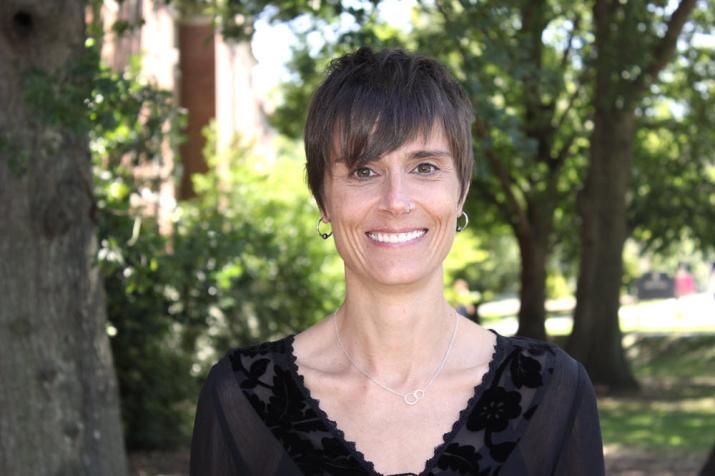
Sara LeGrand, assistant research professor of global health
Published November 10, 2015 under Research News
Men who have sex with men (MSM) comprise more than two-thirds of the U.S. HIV-positive population, and young MSM are far less likely to receive HIV care and adhere to their treatment protocol than their adult counterparts. Sara LeGrand, assistant research professor of global health at DGHI’s Center for Health Policy and Inequalities Research, thinks mHealth solutions can be a game-changer for this population.
HealthMpowerment, an interactive website LeGrand and colleagues at the University of North Carolina-Chapel Hill (UNC) are testing, is geared toward young black MSM. With social features such as discussion forums, an outlet to submit videos and written pieces, and a Q&A option that gives users access to an infectious disease doctor, the mobile-friendly site addresses many topics related to HIV prevention and treatment. The ongoing randomized controlled trial includes more than 450 participants—one of the largest-ever samples of young black MSM.
She’s also working on a mobile app, Epic Allies, in collaboration with DGHI research scholar Joseph Egger, local web development firm Caktus and partners at UNC. Through the HIV medication adherence app, young HIV-positive MSM can play mini-games, access HIV-related learning resources, connect with peers and engage in brief daily surveys about factors that can affect adherence. Epic Allies is currently being tested in 14 U.S. cities.
According to LeGrand, social networking is key to the success of these digital interventions. “Young MSM struggle with stigma and social isolation, so being able to connect with others who share their life experience can have a very powerful positive effect on their behaviors in relation to HIV prevention and treatment,” she said. “Through the preliminary results of the HealthMpowerment study, we’ve actually seen this notion play out.”


